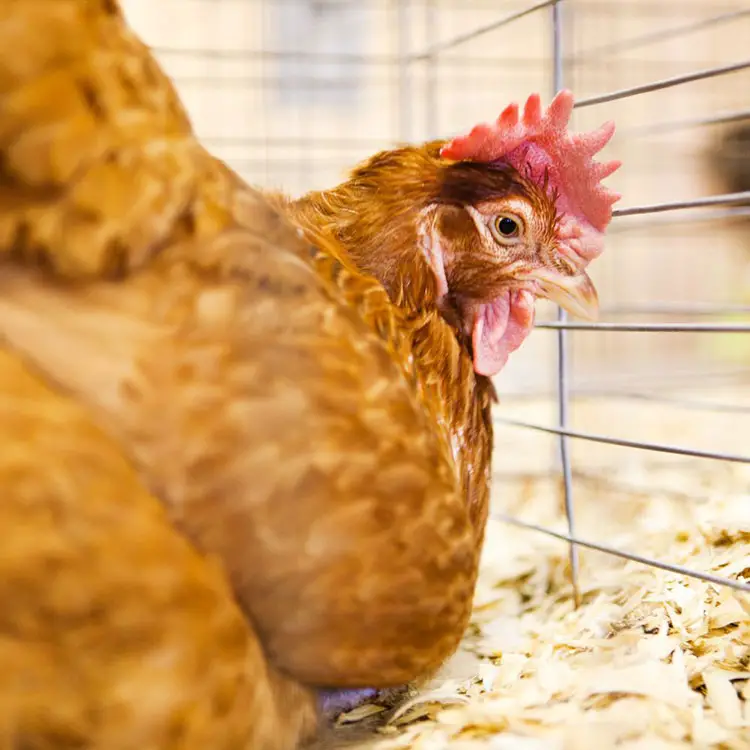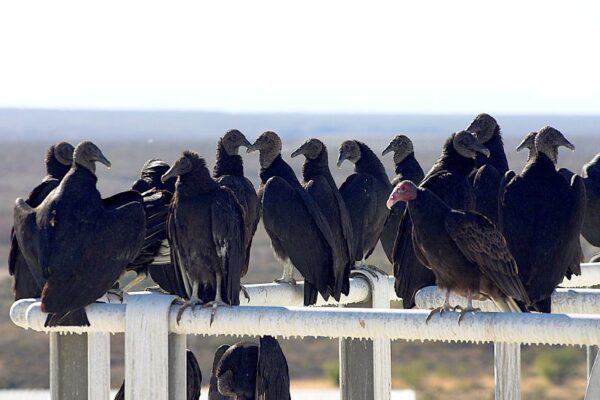Have you ever seen a mother duck strolling in a park with her cute young ducklings?
I mean, how hard is it not to pause and gawk at the abundance of cuteness?
It’s likely that you’ve pondered how many of those cuddly baby ducks a mother can have.
To quench your curiosity, that is why we are here.
We’ll delve into the intriguing world of ducks and examine their reproductive practices in this post.
We’ll examine the variables that affect the amount of ducklings that a successful single mother duck can rear.
Prepare to learn all there is to know about these endearing animals while you relax!
The Process of Duck Mating
Imagine the elaborate dance that ducks do as part of their mating rituals when they court each other and choose a mate.
As one watches these intriguing actions, one may wonder what will happen in the end: how many ducklings can a duck have?
Clutch size is determined by a number of elements, including genetics, environmental factors, and nutrient availability.
As we continue to investigate the reproductive potential of ducks, let’s take a closer look at these variables influencing clutch size.
Variables Impacting Clutch Diameter
After studying the procedure of duck mating, let’s examine the maximum number of ducklings that a duck can have. A female duck, also known as a hen, usually lays eight to fifteen eggs in a single attempt at nesting; this group of eggs is known as a clutch.
But clutch size may vary for a number of reasons, including:
The hen’s age and health: Healthier and younger chickens often lay bigger clutches.
Predation: The quantity of viable eggs in a nest may be decreased by clutch predators such as raccoons, snakes, or other birds.
Environmental factors: Clutch size is greatly influenced by weather, habitat quality, and the availability of food sources.
Remember that not every egg in a clutch will successfully hatch into ducklings for a variety of reasons, including sterility or predation during the incubation period. Taking these factors into account, it is evident that a variety of factors influence the quantity of progeny that a single duck produces.
Next, we’ll look at how ducks survive the incubation stage and finally hatch, bringing new life into the world.

The Time of Incubation and Hatching
Oh, that rearing ducklings could be as easy as counting them on a nice, warm day. The procedure of actually bringing these cute little animals into the world is much more involved and demands close attention to detail.
Ducks normally need a 28-day incubation period, however this might vary according on the species. During this time, certain requirements must be fulfilled. Successful hatching depends on keeping the incubation temperature at a consistent level, which is often between 99°F and 100°F. You should also keep an eye on the humidity levels.
If the temperature is very high or low, or the humidity is excessive, you could have to cope with a hatch rate that isn’t optimal. Let’s move on to discussing the difficulties and rewards of rearing ducklings as we continue our exploration of the fascinating world of ducks and their progeny.
Bringing Up Ducklings: Obstacles And Achievements
The experience of raising ducklings may be both fulfilling and difficult, and there are many things to take into account to ensure their healthy development.
In order to ensure that ducklings grow into robust, healthy adults, caretakers must supply the right food sources, such as starting feed that contains key nutrients and minerals.
Predator protection is essential to these delicate species’ survival in addition to adequate diet. The likelihood of your ducklings flourishing will be greatly increased by secure housing or cages that ward off possible dangers such as raccoons, snakes, or prey-seeking birds.
As you have more experience in raising ducklings, it becomes equally necessary to take into account the differences between the various species of ducks. Let’s take a closer look at this next.
Variations Between Various Duck Species
However, did you know that various duck species may have varied numbers of ducklings?
It’s clear that different duck species have different reproductive capacities when we compare them.
Certain domesticated varieties of ducks, such as Mallard or Pekin ducks, have the ability to lay up to 300 eggs annually, with each clutch potentially producing ten to twelve ducklings.
Conversely, smaller clutches of four to six young at a time are usually produced by wild ducks like diving or teal.
Fascinatingly, because of their unusual genetic composition, hybrid ducklings—which are the offspring of crossbreeding between two different species—may display an unexpected number of young ones.
Therefore, although the average number of ducklings that a normal duck may have is within a range, the actual number might vary greatly across different species and situations.
Commonly Asked Questions
When my ducklings hatch, how can I find out their gender?
Once your ducklings hatch, it might be difficult to tell whose gender they are, but there are some general signs to watch out for.
One way to tell is to pay particular attention to their vocalizations; female ducks (drakes) make louder, more distinct quacking noises, while male ducks (drakes) tend to have deeper, raspier quacks.
Feather coloring is another thing to take into account. As the ducklings become bigger, males usually get brighter or more recognizable plumage than females.
But bear in mind that these techniques may not work every time, so if you’re not sure about the sex of your ducklings, it’s advisable to get advice from an expert.
What Is The Typical Domestic Duck Lifespan And How Does It Differ Between Breeds?
“Different strokes for different folks,” as the proverb says, also applies to domestic duck breeds and how long they live.
Although domestic ducks typically live 8 to 12 years on average, breeds may vary significantly in terms of longevity.
Smaller breeds, like Call Ducks, may live up to 10 years, whereas bigger breeds, like Pekin ducks, often have a lower life expectancy of 5 to 9 years, according to a comparison of breed lifespans.
How long your feathery companions live depends on a number of factors, including nutrition, living circumstances, and adequate care. But keep in mind that every breed has special traits and lifespan potential of its own.
How Can I Make Sure My Ducklings Are Safe From Predators And Have Good Health?
It’s essential to provide your ducklings a safe and secure duckling house and use efficient predator deterrent techniques if you want to protect them from predators.
Robust walls, a reliable roof, and a safe entrance or gate that can be shut at night—when the majority of predators are active—are essential components of a well-constructed shelter.
Furthermore, you should think about adding fence to the area where your ducks travel throughout the day. This will serve as an additional defense against any intruders.
Using motion-activated lights or sprinklers, setting up decoys that resemble other creatures, such as owls or snakes, to frighten off potential predators, and even using guard animals, like dogs or geese, to watch over your ducklings are some predator deterrent techniques.
You may create a safer environment for your feathery companions to flourish by combining these tactics.
Do Ducklings Need Any Particular Nutrients To Grow Into Strong, Healthy Adults?
Ducklings must be fed a diet that is appropriate for each stage of their development and meets their unique nutritional needs in order for them to develop into robust, healthy adults.
Starter feed, which is specially designed for young ducks and provides sufficient protein levels (generally between 18 and 20 percent) required for normal growth, is usually the first part of a well-balanced meal for ducklings.
As the ducklings become older, switching them to a grower diet that has a little less protein in it helps them grow steadily without developing obesity or angel wing problems.
In addition, adding more greens or veggies to their diet might help them acquire the extra vitamins they need while stimulating their minds with foraging activities.
Foods heavy in sugar or empty calories must be avoided as they may be detrimental to your pet’s general health and wellness.
When Should Ducklings Be Introduced To Water and How Do They Learn To Swim?
Ducklings often begin swimming within a few hours after hatching, having learned the skill spontaneously and intuitively. They learn how to swim by practicing and by observing their mother’s motions in the water.
Early exposure to water is crucial for duckling development because it aids in the development of their waterproofing mechanism. Their preen gland, which is situated close to the base of their tail, secretes an oil that keeps their feathers waterproof, and regular exposure to water promotes the gland’s healthy operation.
Nonetheless, because they are susceptible to cold during their first week of life, it is crucial to make sure the water is sufficiently heated (around 90°F or 32°C). When they become bigger, you may lower the temperature a little at a time until they’re ready for outside ponds or other natural water features.
In summary
Ultimately, it’s delightful to see your little ducklings develop and flourish as they navigate life’s challenges.
You can raise happy, healthy ducks by identifying their gender, learning about their life expectancy, and giving them the right care and food.
So let’s get started on this feathery journey!
Take advantage of the chance to care for these cute animals while also picking up insightful lessons from the natural world. By tending to our feathery companions, we may better appreciate the beauty of life’s little pleasures.






